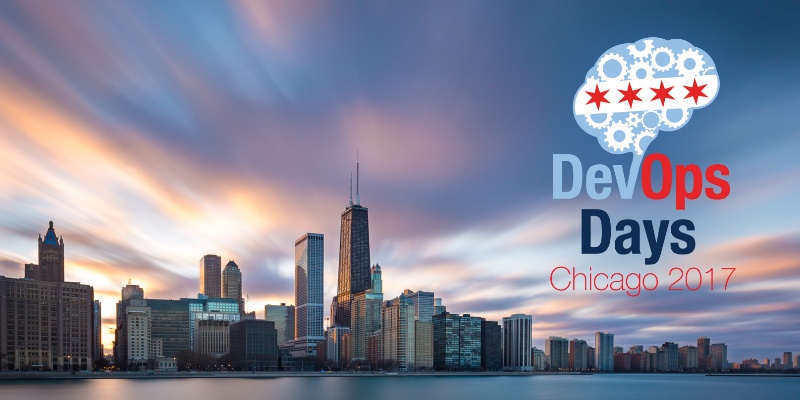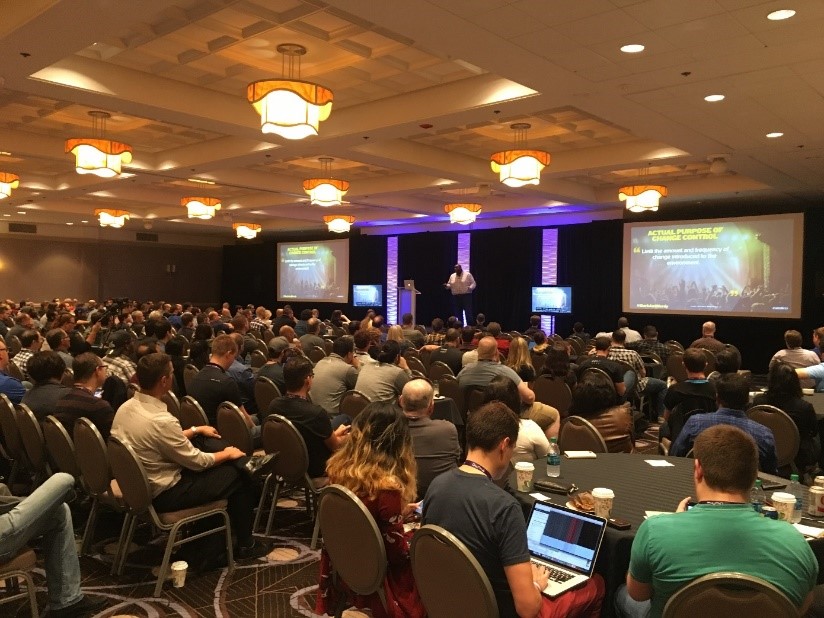
With over 400 attendees, this years’ DevOpsDays served as a reminder that there is a considerable movement going on right now to rewire the way businesses build, test, and deploy software here in Chicago. More than last year, the talks this year focused on the human element of the DevOps model.
From topics like diversity and burnout to security and systems engineering, talks at the event emphasized that the road to becoming a high performing team is paved not with good intentions, but with positively reinforced behaviors and constructive debate. This revealed itself also in the Open Space discussions. The real value of this DevOps conference is that it offers organizations a chance to send their people to a place where they can safely discuss and learn about these human issues with their peers.

Photo: Jeff Smith presents opening talk: Hacking Human Systems
One good example of this was the talk, ‘Devaluing Hard-Work.’ Its focus was primarily on employees’ reluctance to embrace DevOps automation tools because of the elimination of the manual work that was required to deploy applications. Automation made the employees feel threatened by making their previous hard work seem trivial. Confronting these paradigm shifts are an important part of this movement, and doing it in an environment like the one provided at DevOpsDays is a big reason why this event has value.
One of the implications of this movement—rewiring the way businesses build, test, and deploy software—is that transformational IT leadership is required to embrace the DevOps model. The 2017 State of DevOps Report and Gartner support the view that by 2020, half of the CIOs who have not transformed their teams’ capabilities will be displaced from their organizations’ digital leadership teams.1 Fortunately, it seems like the middle managers and the technologists are already embracing this transformational change. What’s left now is to see which leaders will read these shifting winds and adjust their sails in time.
